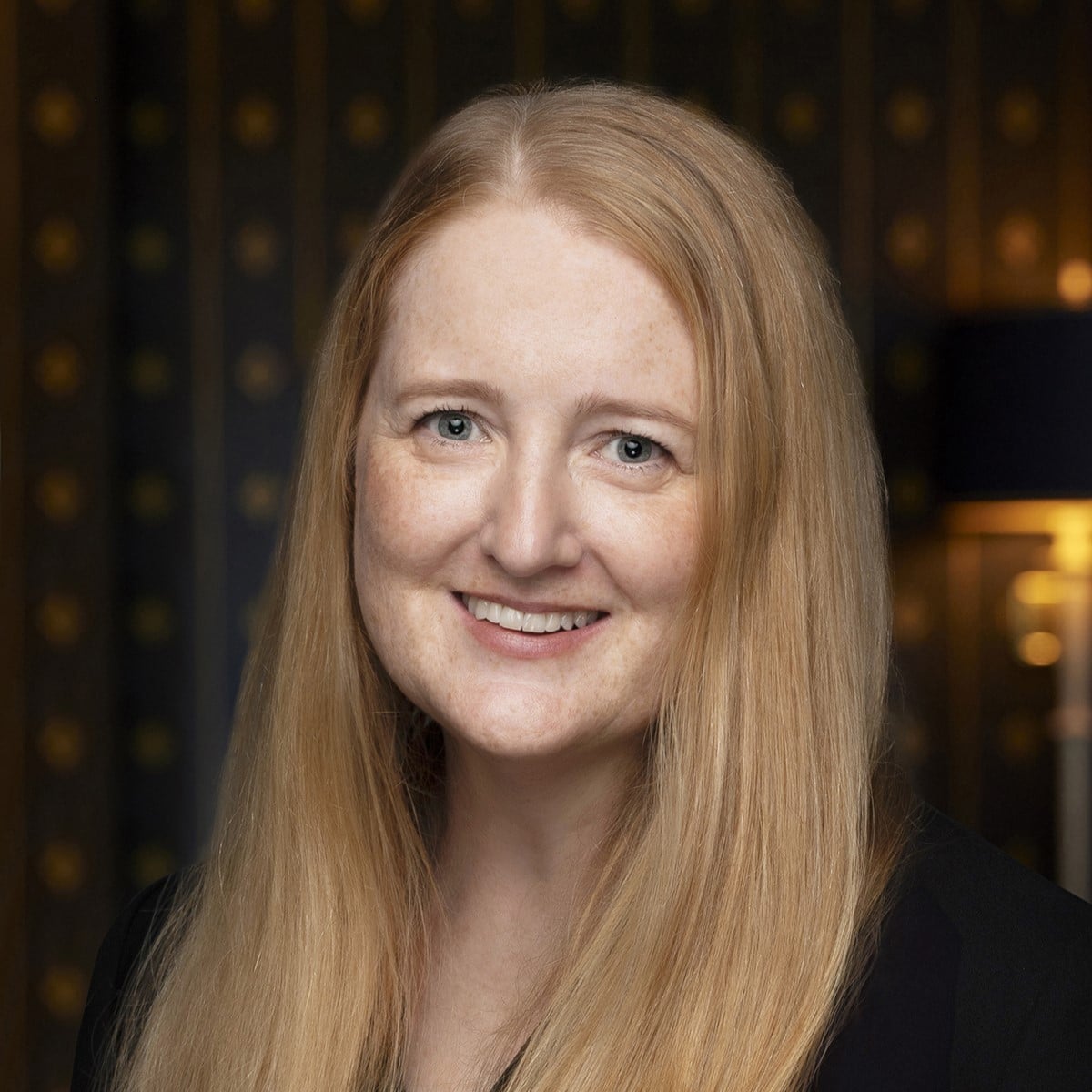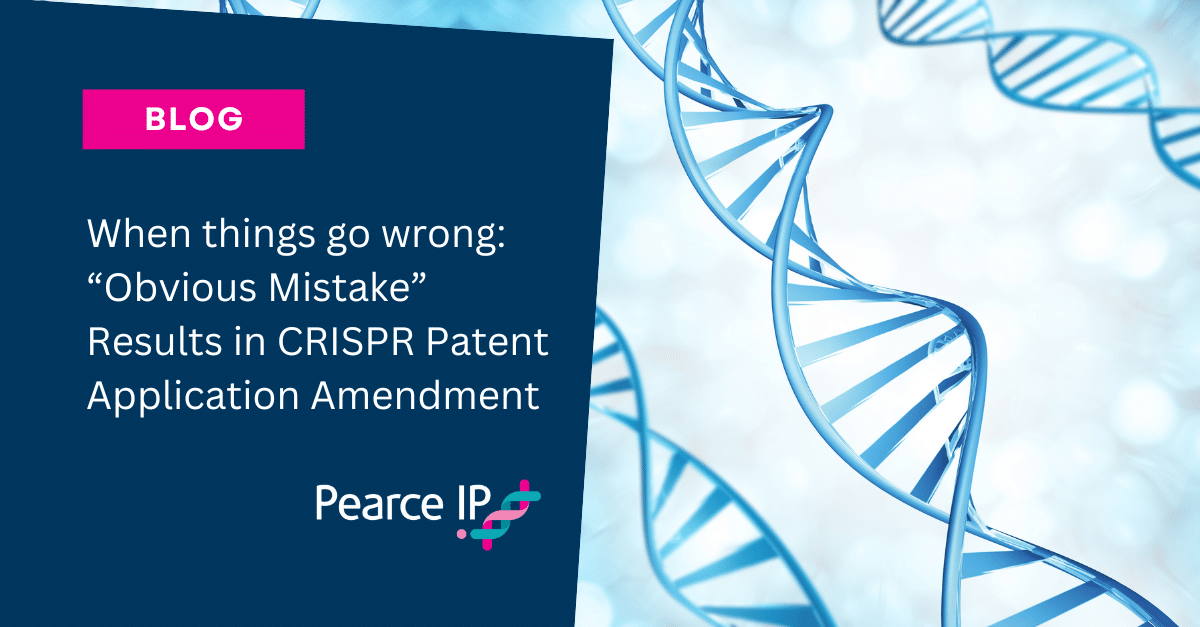| Date of decision: | 23 May 2024 |
| Body: | Federal Court |
| Adjudicator: | Nicholas J |
Background
The battle to claim the earliest valid patent rights to CRISPR gene-editing technology has been fought around the world. In Australia, the most protracted dispute to date has focussed on priority rights of patent application AU2013335451 (the Application), filed in October 2013 by South Korean biotech company, ToolGen Incorporated.
The Application, directed to a method of introducing a double-stranded break at a target nucleic acid sequence in a eukaryotic cell using the Type II CRISPR/Cas9 system, was examined and accepted in the Patent Office. However, it was then challenged in a pre-grant opposition procedure brought by a “straw person” (Fisher) on behalf of an anonymous opponent.
The opposition succeeded in both the Patent Office, before a delegate of the Commissioner of Patents (Commissioner), and on appeal to the Federal Court of Australia. As we reported here, the Court held that the Application was not entitled to its claimed priority date and, if granted, would be invalid based on lack of novelty and inventive step. The Court also found claim 19 to lack clarity.
Following delivery of the Federal Court decision on 14 July 2023, ToolGen applied to amend the claims of the Application to overcome the invalidity issues, including to correct an alleged “obvious mistake”.
Key Issues
Court’s power to amend a patent application under Australian law
The fact that the Court had issued its decision in relation to the appeal did not prevent ToolGen from seeking to amend its patent application as final orders had not yet been made. Justice Nicholas indicated that the amendment application should be heard by the Court, rather than the Patent Office, given the “complexity” of the matter.
Under the Australian Patents Act 1990 (Cth), the Court has a discretionary power to direct the Commissioner to amend a patent application that has previously been accepted if the amendment is “allowable”. Relevantly, “allowable” amendments are those which do not result in:
- the specification claiming or disclosing matter that extends beyond that disclosed in the application as filed;
- any claim being broader than the scope of the claims before amendment; and
- a defect being introduced into the specification which means it no longer complies with requirements such as sufficiency, support and clarity.
An exception to the requirement for an “allowable” amendment is if the amendment is made to correct a “clerical error” or an “obvious mistake”.
In each case, the Court determines whether to exercise its discretion by balancing the right of the patent applicant to apply to amend the claims and the public interest in ensuring that an amendment application is made promptly, for proper purposes, and without conferring any unfair advantage on the patent applicant.
ToolGen’s Proposed Amendments
ToolGen’s proposed amendments were unopposed. They largely involved deletions of claims and narrowing the scope of the remaining claims to align them with the disclosure in the main priority document and thereby avoid the Court’s invalidity findings based on lack of priority. As these amendments did not broaden the scope of the claims, it was uncontroversial that they were “allowable”.
Significantly, following notification to him of the amendments, the Commissioner had provided his opinion that there was one amendment sought by ToolGen to the remaining independent claim (previous claim 10) that fell outside the scope of, and therefore broadened, the unamended claims.
Claim 10 originally required that the CRISPR/Cas9 system of the claimed method comprised a “nucleic acid encoding a guide RNA”. In its July 2023 judgment , the Court had determined that this meant the guide RNA needed to be transcribed (copied from DNA) in the cell (“in vivo”). However, a dependent claim (claim 19) contemplated that the guide RNA would be transcribed outside the cell (“in vitro”). This resulted in a finding that claim 19 lacked clarity.
The Commissioner’s view was that claim 19 had “no meaningful scope” due to the Court’s lack of clarity finding. This meant he considered ToolGen’s proposed amendment, which involved amending the remaining independent claim to comprise “an in vitro transcribed” guide RNA, changed the scope of the claim from (before amendment) a nucleic acid encoding the guide RNA to (after amendment) the guide RNA itself.
ToolGen disagreed with this characterisation but argued that, in any event, claims 10 and 19, when read together, had contained an “obvious mistake”.
Obvious mistake
It is well-established that for there to be an “obvious mistake” in a patent application, it must be apparent on the face of the specification to the person skilled in the art not only that “something has gone wrong” but also what the mistake is and what the correction is that is needed.
As Justice Nicholas explained, the need for both the error itself and the necessary correction to be obvious to the person skilled in the art “is aimed at ensuring that relevant members of the public are not misled as to the scope of the monopoly”.
Outcome
The Court decided that there was an “obvious mistake” when claim 10 was read together with dependent claim 19 (before amendment), which would have been apparent on the face of the specification. Further, the correction to this mistake would also have been obvious to the person skilled in the art, involving eliminating the inconsistency between claims 10 and 19.
Consequently, Justice Nicholas held that ToolGen’s proposed amendment corrected the obvious mistake in a manner that would have been obvious to a person skilled in the art.
His Honour then considered whether he should exercise his discretion to direct the Commissioner to make ToolGen’s proposed amendments. He found that it was not unreasonable for ToolGen to have waited for the Court’s decision in the opposition proceeding, including as to the construction of claims 10 and 19, before seeking the amendments. As such, there was no unreasonable delay and there was no evidence that any person had suffered any detriment by reason of any delay.
The Court therefore ordered that the Application be amended and proceed to grant.
Implications
While circumstances in which there is an “obvious mistake” in a patent application are likely to be rare, it is a basis for patent amendment that is available where both the error and the required correction are plain on the face of the specification.
The decision serves as a reminder to patent litigants that the Court has power to direct that patent amendments be made at any time during a proceeding, including after a decision has issued in an appeal from the Patent Office but before final orders have been made. In this case, delay will not necessarily disentitle the patent applicant from amending the application, so long as it was reasonable for them to wait for a decision to be delivered before applying to amend.
About Pearce IP
Pearce IP is a boutique firm offering intellectual property specialist lawyers, patent attorneys and trade mark attorneys to the life sciences industries (in particular, pharmaceutical, biopharmaceutical, biotech, ag-tech and food tech). Pearce IP is the 2021 ‘Intellectual Property Team of the Year’ (Lawyers Weekly Australian Law Awards) and was shortlisted for the same award in 2022. Pearce IP is ranked in IAM Patent 1000 and Managing IP (MIP) IP Stars, in Australasian Lawyer 5 Star Awards as a ‘5 Star’ firm, and the Legal 500 APAC Guide for Intellectual Property.
Our leaders have been recognised in virtually every notable IP listing for their legal, patent and trade mark excellence including: IAM Patent 1000, IAM Strategy 300, MIP IP Stars, Doyles Guide, WIPR Leaders, 5 Star IP Lawyers, Best Lawyers, and Australasian Lawyer 5 Star Awards, and have been honoured with many awards including Australian Law Awards – IP Partner of the Year, Women in Law Awards – Partner of the Year, Women in Business Law Awards - Patent Lawyer of the Year (Asia Pacific), Most Influential Lawyers (Changemaker), among other awards.

Naomi Pearce
CEO, Executive Lawyer (AU, NZ), Patent Attorney (AU, NZ) & Trade Mark Attorney (AU)
Naomi is the founder of Pearce IP, and is one of Australia’s leading IP practitioners. Naomi is a market leading, strategic, commercially astute, patent lawyer, patent attorney and trade mark attorney, with over 25 years’ experience, and a background in molecular biology/biochemistry. Ranked in virtually every notable legal directory, highly regarded by peers and clients, with a background in molecular biology, Naomi is renown for her successful and elegant IP/legal strategies.
Among other awards, Naomi is ranked in Chambers, IAM Patent 1000, IAM Strategy 300, is a MIP “Patent Star”, and is recognised as a WIPR Leader for patents and trade marks. Naomi is the 2023 Lawyers Weekly “IP Partner of the Year”, the 2022 Lexology client choice award recipient for Life Sciences, the 2022 Asia Pacific Women in Business Law “Patent Lawyer of the Year” and the 2021 Lawyers Weekly Women in Law SME “Partner of the Year”. Naomi is the founder of Pearce IP, which commenced in 2017 and won 2021 “IP Team of the Year” at the Australian Law Awards.

Helen Macpherson
Executive, Lawyer (Head of Litigation –Australia)
Helen has over 25 years’ experience as an intellectual property specialist and is recognised as an industry leader. Helen advises on all forms of intellectual property including patents, plant breeder’s rights, trade marks, copyright and confidential information.
Throughout her career, Helen has maintained a strong focus on high-value patent mandates involving complex technologies. In these mandates, Helen has been able to draw upon her technical training in biochemistry and molecular biology, as well as her ability to up-skill swiftly in relation to diverse technologies. Helen’s patent work has encompassed the technical fields of inorganic, organic, physical and process chemistry, biochemistry, biotechnology (including genetics, molecular biology and virology) and physics.
Helen is a member of the Intellectual Property Committee of the Law Council of Australia, as well as a member of the Intellectual Property Society of Australia and New Zealand.

Chantal Savage
Special Counsel, Lawyer
Chantal is an intellectual property disputes lawyer with experience advising across the spectrum of IP rights, including patents, trade marks, copyright, plant breeder’s rights and trade secrets/confidential information. Recognised as a Rising Star in IP by the Legal 500 Asia Pacific (2021-2024), Chantal has previously worked for international and top tier law firms in Australia and the United Kingdom and now at Pearce IP.
With a science degree specialising in molecular biology and biochemistry, Chantal’s practice focuses particularly on complex, high-value, multi-jurisdictional patent infringement and revocation proceedings for clients in the life sciences sectors.

